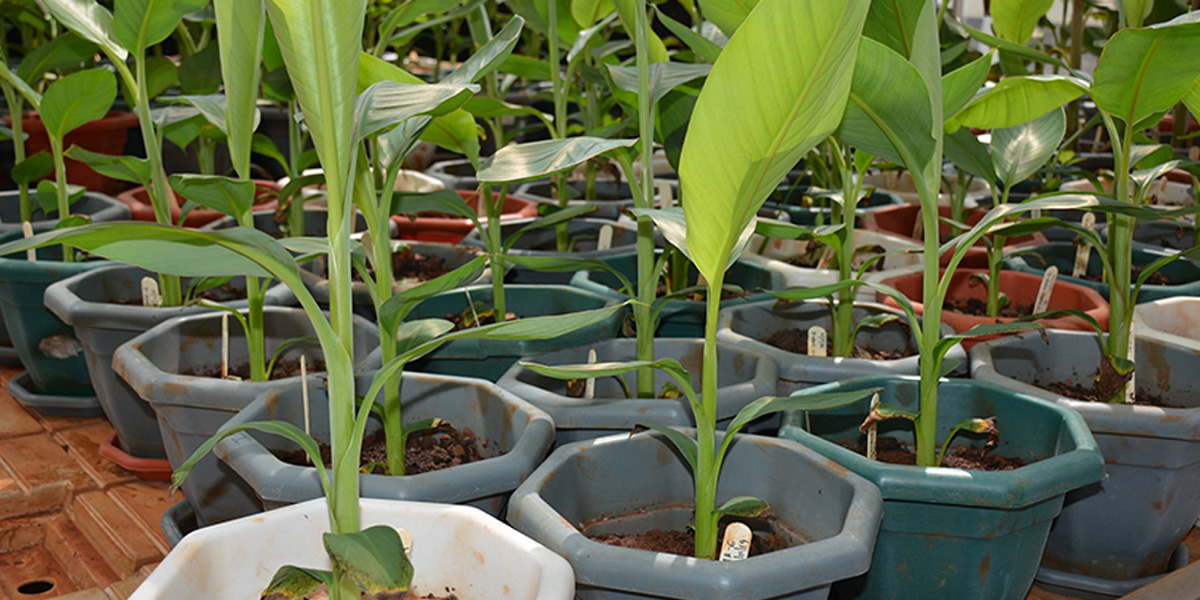
IITA Study Explores CRISPR Genome Editing for Africa's Major Staples
June 9, 2022| |
A study led by Leena Tripathi, Research Director at the International Institute of Tropical Agriculture (IITA), explores the recent advances and progress in CRISPR-Cas9-based genome editing efforts with major staple food crops grown in several countries in Africa.
The researchers used genome editing tools to improve African staple crops for resistance to biotic and abiotic stresses and improved nutritional quality. The crops under development include disease resistant bananas, maize resistant to lethal necrosis, and sorghum resistant to the parasitic plant Striga and enhanced quality for African farmers.
“Genome editing tool is one of the powerful technologies available in the crop improvement toolbox, which can be used along with other tools for improving agriculture to feed the world's rapidly growing population. It can develop improved crop varieties with no foreign gene integration like those created through conventional breeding,” explained Tripathi. She added that genome-edited products are not regulated as GMOs in several countries, including two countries in Africa: Kenya and Nigeria.
For more details, read the news release from IITA.
| |
You might also like:
- Kenya Publishes Genome Editing Regulations Becoming Second African Country To Do So
- Massive Genomic Project to Benefit African Biodiversity, Science Community
- African Coalition for Communicating Genome Editing Launched as Bioscience Symposium Concludes
Biotech Updates is a weekly newsletter of ISAAA, a not-for-profit organization. It is distributed for free to over 22,000 subscribers worldwide to inform them about the key developments in biosciences, especially in biotechnology. Your support will help us in our mission to feed the world with knowledge. You can help by donating as little as $10.
-
See more articles:
-
Gene Editing Supplement (June 9, 2022)
-
Research and Tools
- IITA Study Explores CRISPR Genome Editing for Africa's Major Staples
- Transposons Provide Insights on Making More Effective Genome Editors
- More Precise Timing of Gene Editing Achieved with Chemical Method
-
Trends and Impact
- Agricultural Genome Program to Enhance Abu Dhabi’s Food Security Capability
- EU-SAGE Launches Interactive Database of Genome-Edited Crops
- Philippine Regulators Receive Training on Assessing PBI Applications
-
Read the latest: - Biotech Updates (December 17, 2025)
- Gene Editing Supplement (December 17, 2025)
- Gene Drive Supplement (February 22, 2023)
-
Subscribe to BU: - Share
- Tweet

